Microservice Storage - Code
Create, deploy, and manage databases from within Unity [PROF-MicroStorage-03]
Here are examples which cover common programming needs.
Examples
The Beamable Example Project is a collection of code snippets. Each snippet demonstrates real-world usage of a specific feature or service in an isolated Unity Scene with a MonoBehaviour.
Beamable SDK Examples
• The following example code is available for download at SDK Examples (Beamable Microservices Storage Examples)
UserDataStorage
A custom child of MongoStorageObject is defined to wrap the database. The UserMessage is added as the high-level object to be stored in the database.
using Beamable.Server;
using MongoDB.Bson;
namespace Beamable.Server
{
[StorageObject("UserDataStorage")]
public class UserDataStorage : MongoStorageObject
{
}
public class UserMessage
{
public ObjectId Id;
public string Message;
public int X;
public int Y;
}
}
UserDataService
The Beamable Microservice UserDataService is created to wrap all calls to the database.
See Microservices for more info.
using System;
using System.Collections.Generic;
using System.Linq;
using MongoDB.Driver;
using UnityEngine;
namespace Beamable.Server
{
[Microservice("UserDataService")]
public class UserDataService : Microservice
{
[ClientCallable]
public async Promise<bool> SaveMessage(string message, int x, int y)
{
bool isSuccess = false;
try
{
var db = await Storage.GetDatabase<UserDataStorage>();
var collection = db.GetCollection<UserMessage>("messages");
collection.InsertOne( new UserMessage()
{
Message = message,
X = x,
Y = y
});
isSuccess = true;
}
catch (Exception e)
{
Debug.LogError(e.Message);
}
return isSuccess;
}
[ClientCallable]
public async Promise<List<string>> GetMessage(int x, int y)
{
var db = await Storage.GetDatabase<UserDataStorage>();
var collection = db.GetCollection<UserMessage>("messages");
var messages = collection
.Find(document => document.X == x && document.Y == y)
.ToList();
return messages.Select(m => m.Message).ToList();
}
}
}
UserDataMicroServiceExample
using System.Collections.Generic;
using UnityEngine;
using Beamable.Server.Clients;
namespace Beamable.Examples.Features.Microservices.UserDataMicroServiceExample
{
/// <summary>
/// Demonstrates <see cref="Microservices"/>.
/// </summary>
public class UserDataMicroServiceExample : MonoBehaviour
{
// Properties -----------------------------------
// Fields ---------------------------------------
private UserDataServiceClient _userDataServiceClient = null;
// Unity Methods --------------------------------
protected void Start()
{
Debug.Log("Start() Instructions...\n" +
"* Complete docker setup per https://docs.beamable.com/docs/microservices-feature-overview\n" +
"* Start the server per https://docs.beamable.com/docs/microservices-feature-overview\n" +
"* Play This Scene\n" +
"* View the Unity Console output\n" +
"* Enjoy!\n\n\n");
SetupBeamable();
}
// Methods --------------------------------------
private async void SetupBeamable()
{
var beamContext = BeamContext.Default;
await beamContext.OnReady;
Debug.Log($"beamContext.PlayerId = {beamContext.PlayerId}");
_userDataServiceClient = new UserDataServiceClient();
// #1 - Call Microservice
bool isSuccess = await _userDataServiceClient.SaveMessage("Hello World!", 0, 0);
// #2 - Result = true
Debug.Log ($"SaveMessage() isSuccess = {isSuccess}");
// #3 - Call Microservice
List<string> messages = await _userDataServiceClient.GetMessage(0, 0);
// #4 - Result = true
Debug.Log ($"GetMessage() messages.Count = {messages.Count}, messages[0] = {messages[0]}");
}
}
}
Samples
Beamable Sample Projects are created to demonstrate real-world usage of specific features.
Each Sample Project repo is a full and complete game.
Beamable Samples
• The sample code is available for download at Chat & MicroStorage Sample Game (GPW2)
| Scene01Intro | Scene02Game | Scene03Chat | Scene04Settings | Scene05Leaderboard |
|---|---|---|---|---|
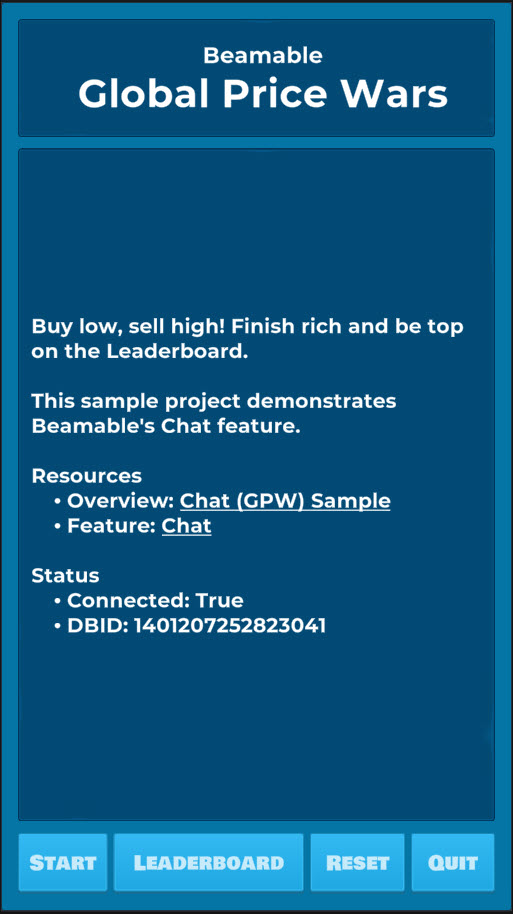 | 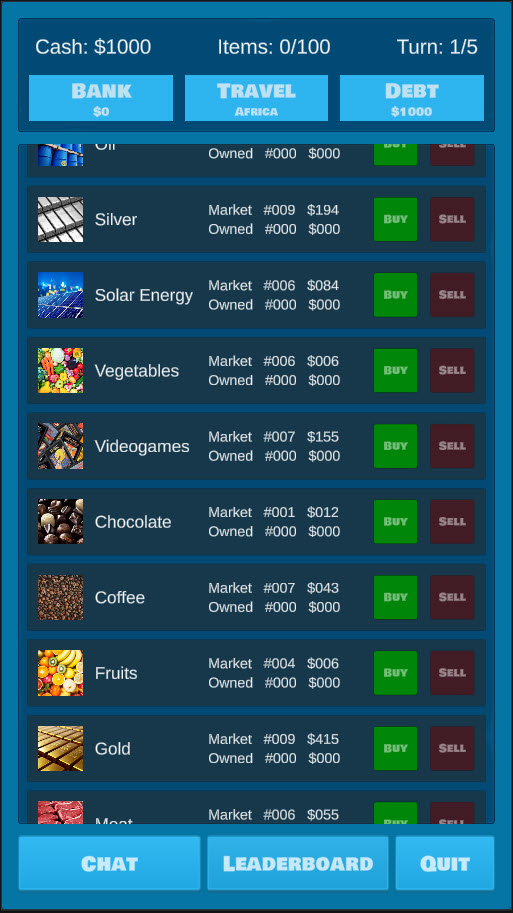 | 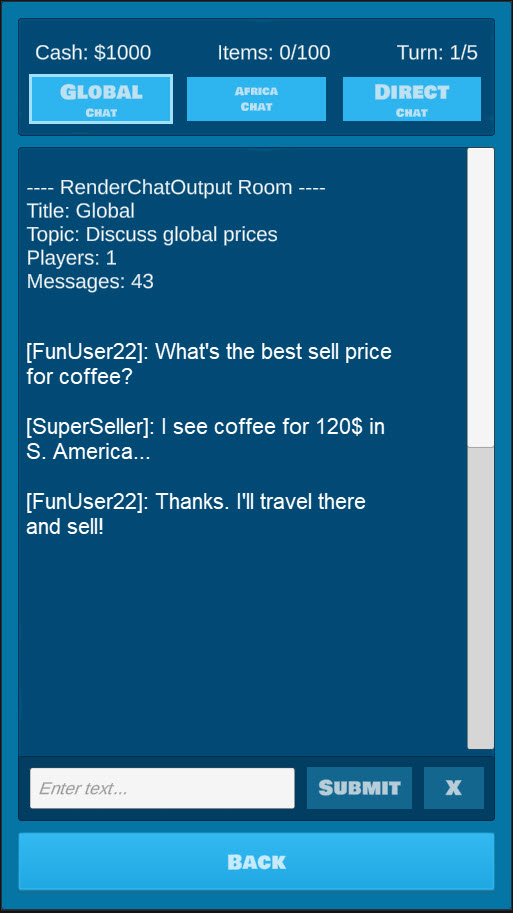 | 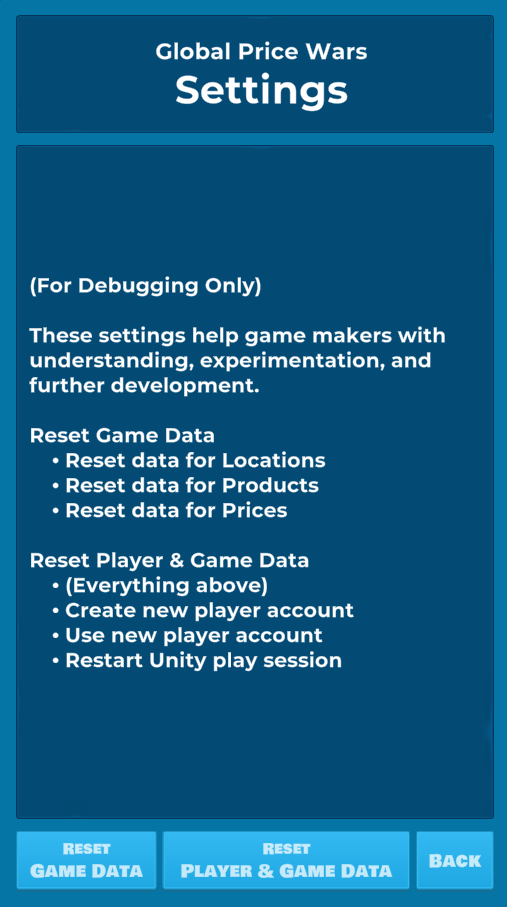 | 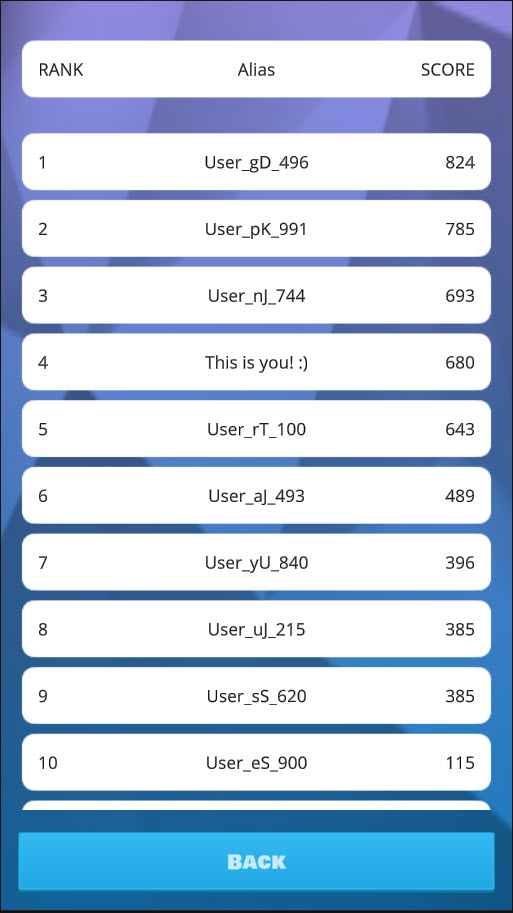 |
Updated 9 months ago
